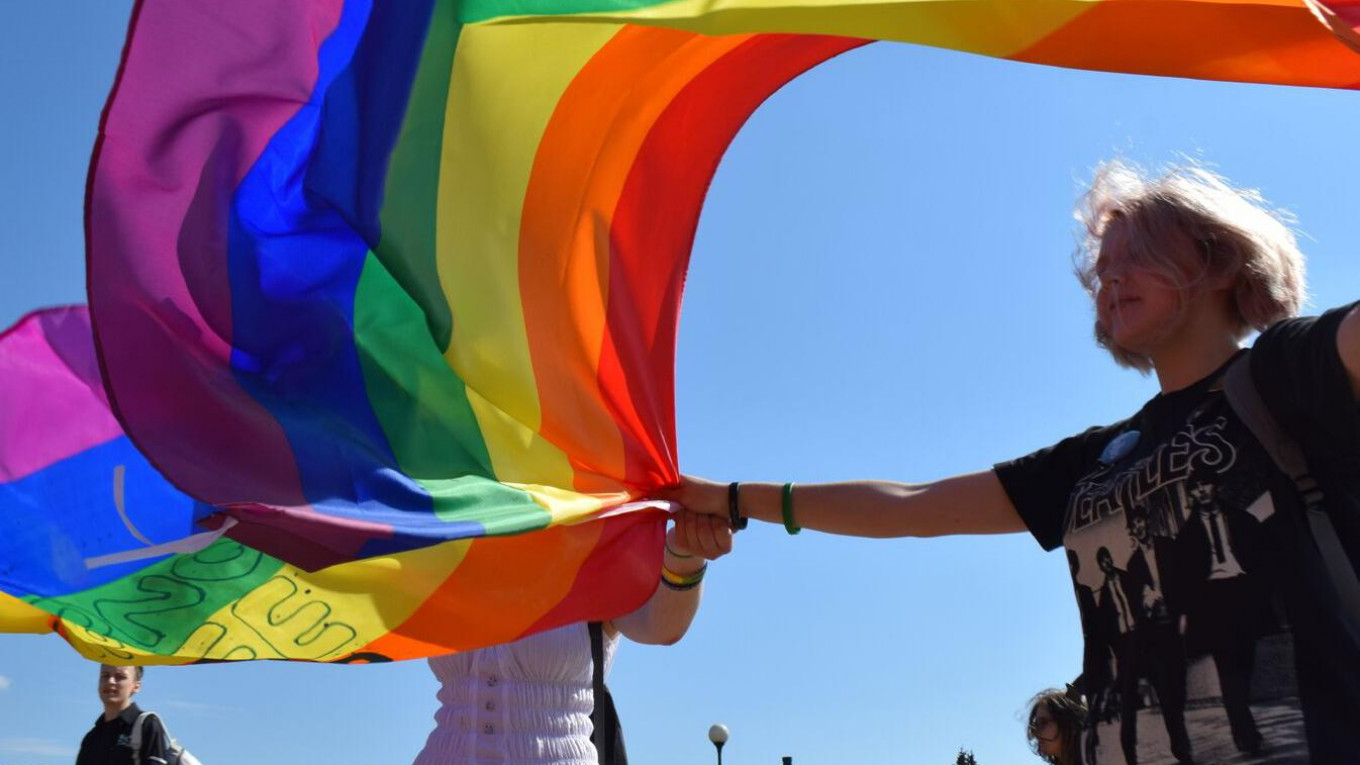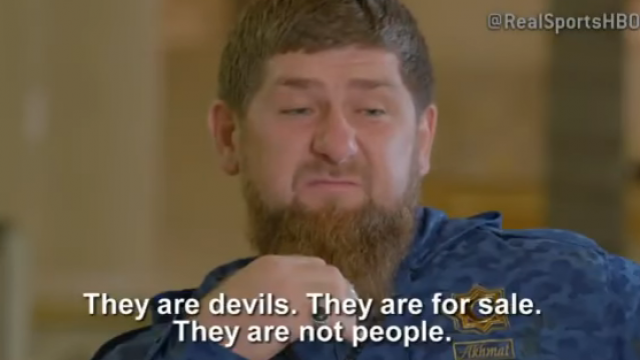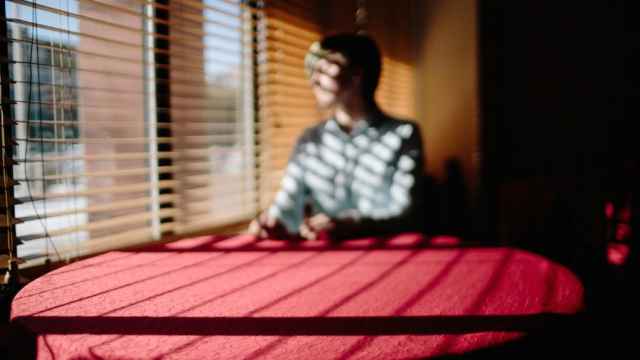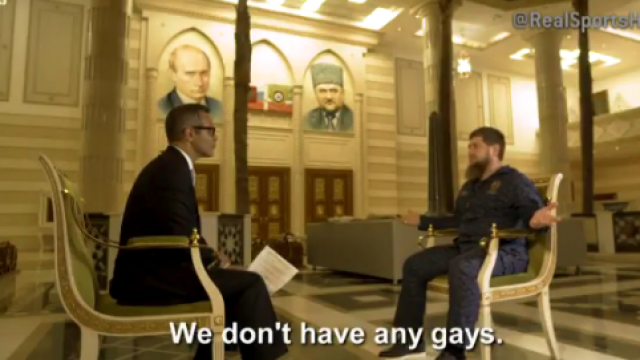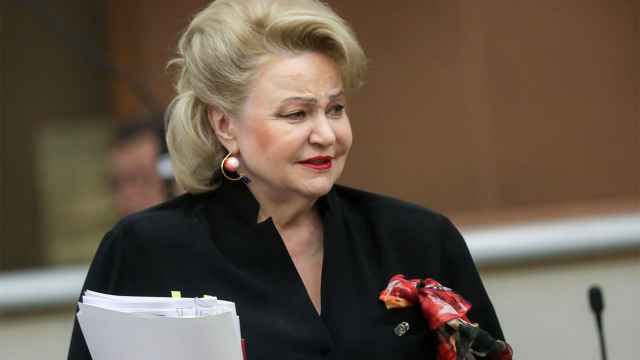While sunbathers lounged on St. Petersburg’s Field of Mars on a scorching summer day, a different crowd wrapped in rainbow flags gathered at the park for a different reason: to defend their rights.
Around one hundred activists waving rainbow flags and banners gathered at midday on Saturday to mark St. Petersburg’s eighth Gay Pride, in what organizers said was the largest turnout since 2010. They were watched closely by riot police.
“Everyone has his own reason to come to the pride,” says Sveta, a lesbian activist. “Many of my friends didn’t come because they were afraid to be discriminated at work, to lose their job or get expelled from university.”
Since the introduction of a so-called “gay propaganda” law in 2013, the LGBT community has been increasingly marginalized. The law punishes disseminating information considered to be “homosexual propaganda” with a fine of up to 500,000 rubles ($8,000).
In effect, it has stigmatized the LGBT community and made it a target for harassment. In recent months, reports of a gay purge in Chechnya were dismissed by the Kremlin.
But this year was a partial victory for the LGBT community in Russia — and for activist Yury Gavrikov, who co-organized the pride in particular.
In February, after complaints filed in 2010 and 2011 by Russian LGBT activists, the European Court of Human Rights ruled that Russia had violated activists’ right to assembly by blocking previous gay prides and ruled the gay propaganda law was discriminatory.
The Russian government was consequently ordered to pay the four activists with a 7,500 ($8,900) euro compensation, a refund that Gavrikov says has so far failed to arrive.
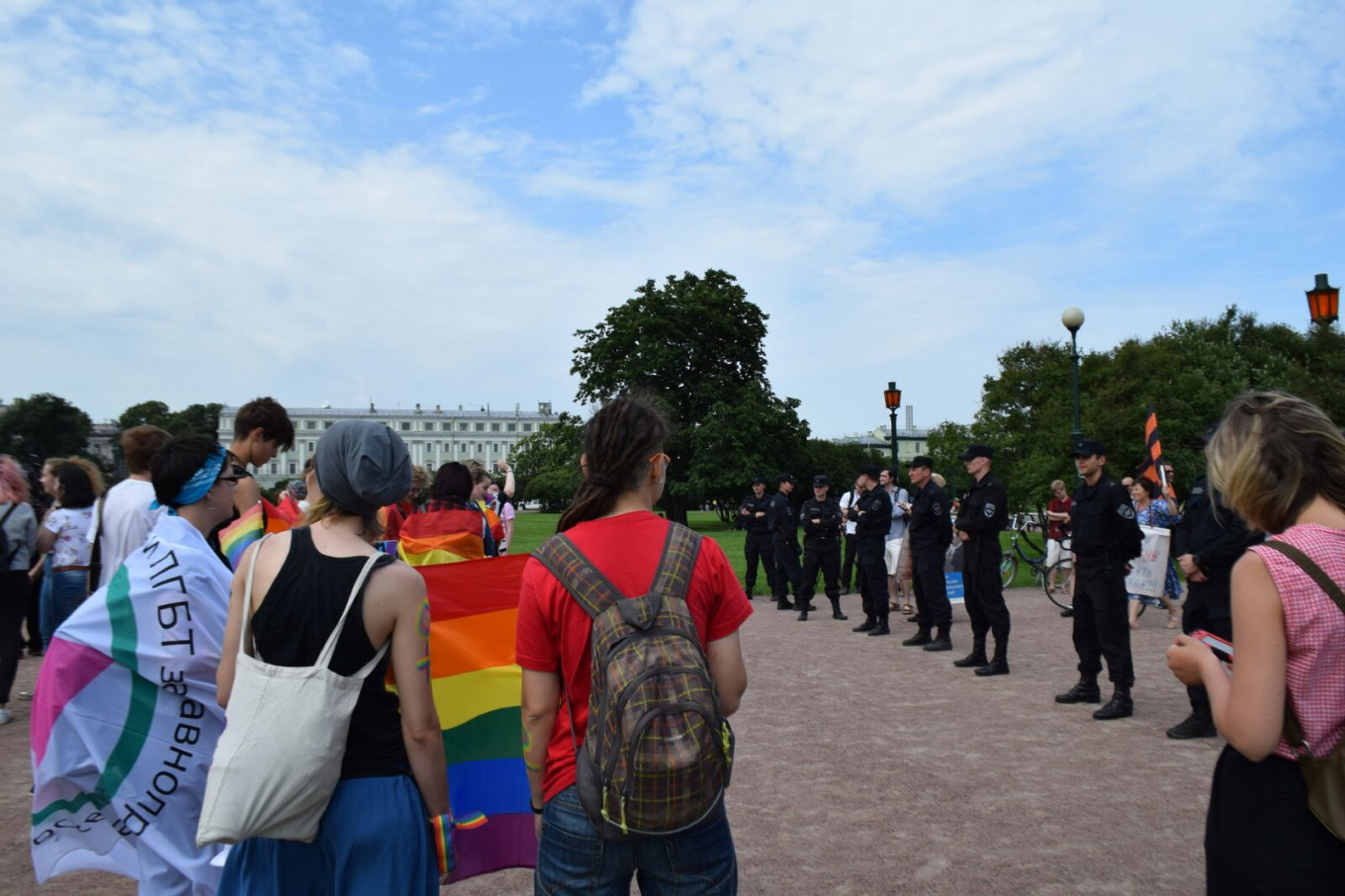
Dmitry, an activist who declined to give his last name, told The Moscow Times he joined the parade to show support for the LGBT community. “I’m heterosexual but being here is a matter of solidarity for me.”
“Heterosexuality is a sin,” laughs Alexander Khmelev behind him. As an openly gay priest, Aleksander was expelled by the Orthodox Church and joined the Celtic German Church where being gay is allowed.
“From my religious point of view I think that the church and the state should not interfere with people’s personal lives.”
Only in 2014 did the St. Petersburg authorities gave consent for the event, restricting it to newly instituted “free speech zones” including the Field of Mars, where citizens can gather after informing city authorities.
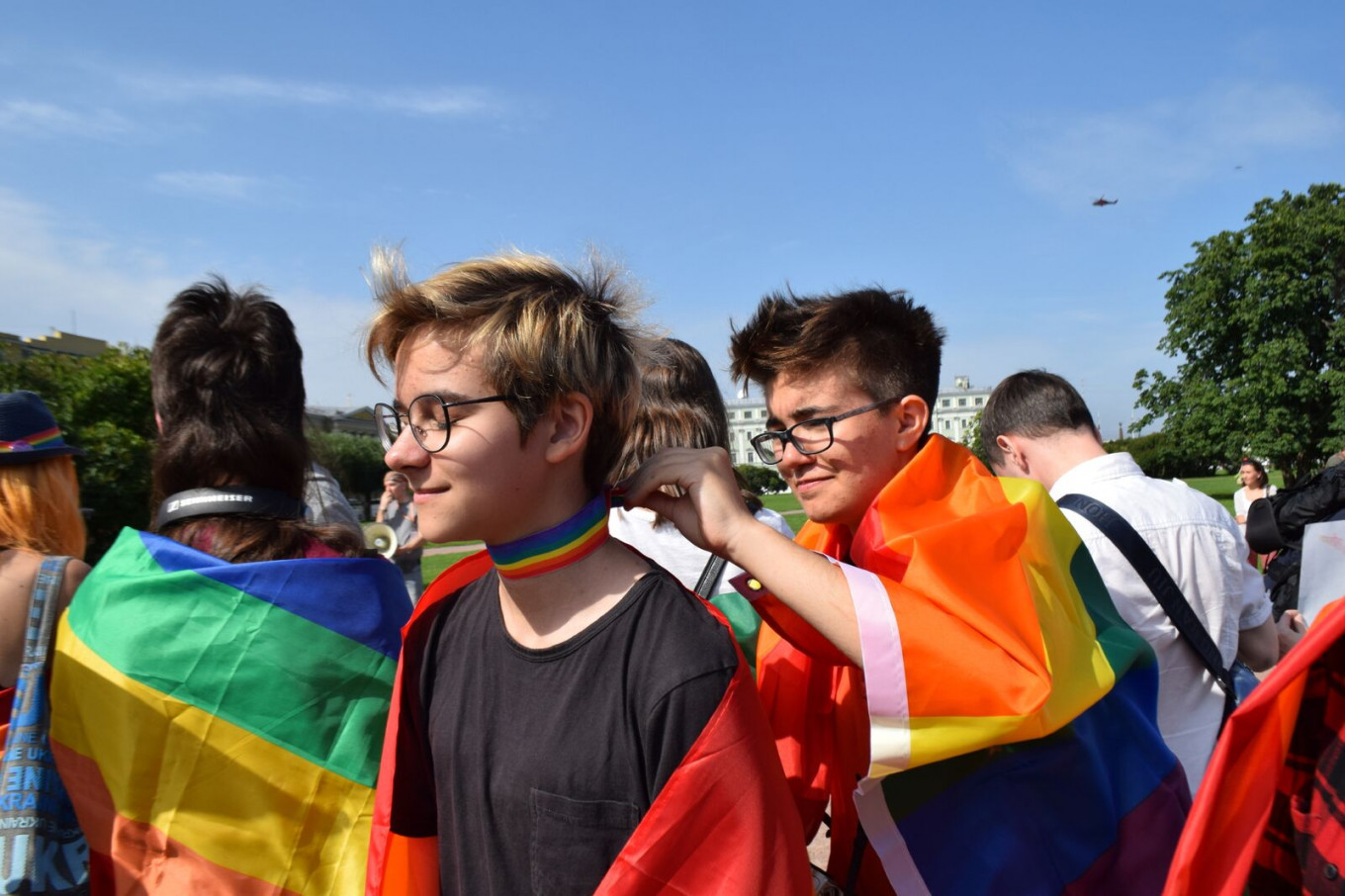
But the free-speech zones also became off-limits for the LGBT activists on Saturday. A prerequisite for obtaining a permit is that no other event takes place on the same day.
This year, the application for a gay pride was rejected because of an already planned cultural event in remembrance of WWII, the pride’s organizers told The Moscow Times.
Only five people attended that event, a Moscow Times reporter noted, who were waving the orange-and-black flag of St. George’s while voicing their condemnation of the participants of the pride.
Creating pseudo-events to stop the gay pride has become common practice and a frequently applied expedient to stop LGBT events, Gavrikov says.
He said four proposals to hold the parade in different locations were rejected, three of which supposedly because of construction work at the locations.
“If you read the papers, they are doing some very intensive construction work in those streets,” he said. “But if you go there nothing is happening and nothing has even started.”
Activists hope the parades will raise awareness and put LGBT rights on the political agenda before elections in March 2018.
An openly homosexual politician Sergei Troshin, from the liberal opposition party Yabloko, which this year voiced their support for LGBT ahead of local elections in September.
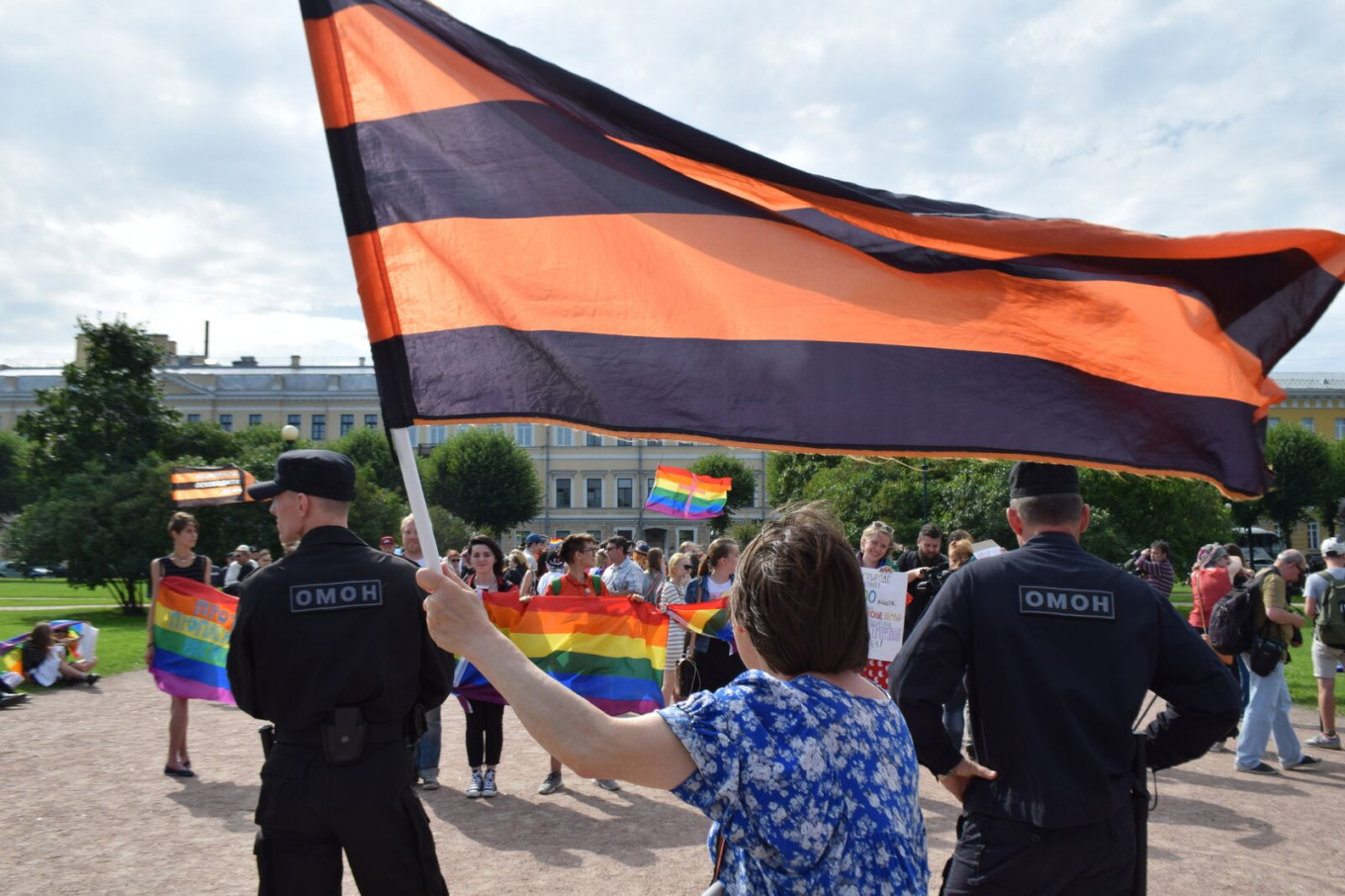
Prominent opposition leader Alexei Navalny has also made the repealing of the anti-gay propaganda law part of his presidential election campaign.
As participants dispersed after the march, a group of nine men attacked activists and journalists with pepper spray. Around ten people were reportedly injured, including Radio Liberty reporter Ksenia Klochkova and photojournalist David Frenkel.
OVD-Info said one participant, Anna Grabetskaya, was detained for disobeying police orders while holding a banner that read “I love my wife.”
A Message from The Moscow Times:
Dear readers,
We are facing unprecedented challenges. Russia's Prosecutor General's Office has designated The Moscow Times as an "undesirable" organization, criminalizing our work and putting our staff at risk of prosecution. This follows our earlier unjust labeling as a "foreign agent."
These actions are direct attempts to silence independent journalism in Russia. The authorities claim our work "discredits the decisions of the Russian leadership." We see things differently: we strive to provide accurate, unbiased reporting on Russia.
We, the journalists of The Moscow Times, refuse to be silenced. But to continue our work, we need your help.
Your support, no matter how small, makes a world of difference. If you can, please support us monthly starting from just $2. It's quick to set up, and every contribution makes a significant impact.
By supporting The Moscow Times, you're defending open, independent journalism in the face of repression. Thank you for standing with us.
Remind me later.


